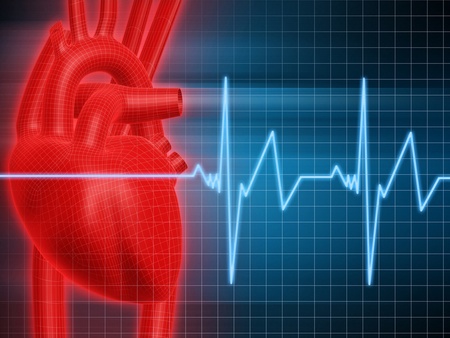Between 2.5% and 3% of the Scottish population suffer heart failure – it is the most common cause of acute hospitalisation for the over 60s.
The mortality rate for heart failure is worse than all the most common cancers put together - bar lung cancer.
Next week the public can get the chance to hear more about heart research and clinical procedures from two leading cardiologists who are giving a free talk.
Heart Health- the latest in the University of Aberdeen’s Café Med series – takes place on Monday (May 10) at the Suttie Centre on the Foresterhill health campus at 6pm.
The speakers are Professor Michael Frenneaux, Regius Professor of Medicine at the University and consultant cardiologist with NHS Grampian, and Dr Paul Broadhurst who is also a consultant cardiologist with NHS Grampian.
One of Professor Frenneaux’s areas of expertise is a genetic heart disease called hypertrophic cardiomyopathy which affects one in 500 people and is often to blame when a young athlete suddenly collapses and dies while playing a sport.
The cardiologist will discuss the condition during part of his talk.
“I’ll show an image of a healthy heart and a heart with hypertrophic cardiomyopathy and I’ll describe the disease and explain how it can result in sudden death. I’ll also speak about heart failure and explain how it is managed,” said Professor Frenneaux.
“I’ll also be explaining the important relationship between research and the treatment of patients. Often you can see a patient with a problem and that fuels your research interest.”
Dr Broadhurst will discuss methods of treating heart rhythm disturbances and also explain cardiology procedures such as angioplasty.
“There is so much we can do to help patients with heart disease now. Medication is very effective but some patients require a more interventional approach and I hope to show the audience examples of successful treatments of ‘plumbing problems’ which affect the coronary arteries and valves and ‘electrical problems’ which affect the heart rhythm,” said Dr Broadhurst.
Monday’s Café Med session is open to all and there is no need to book. For more information about the Café Med and other Café Scientifique talks organised by the University see: http://www.abdn.ac.uk/science/cafescience/
The Café Med sessions — like all the Café Scientifique events - are supported by a science engagement grant from the Scottish Government.


